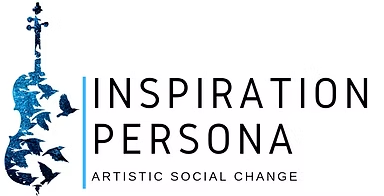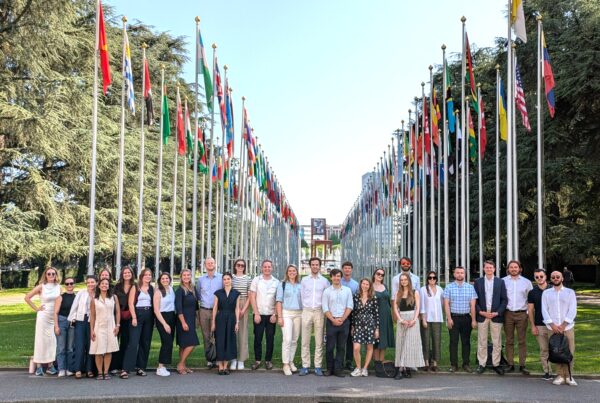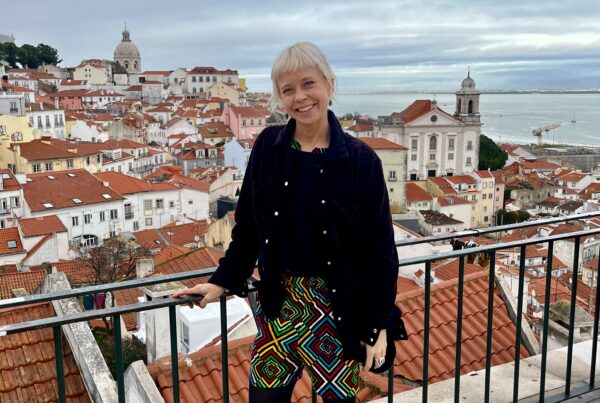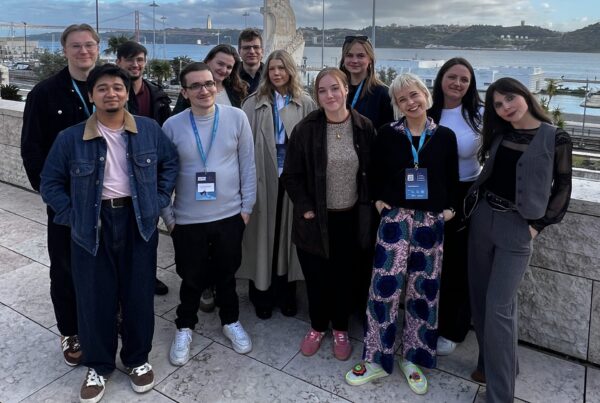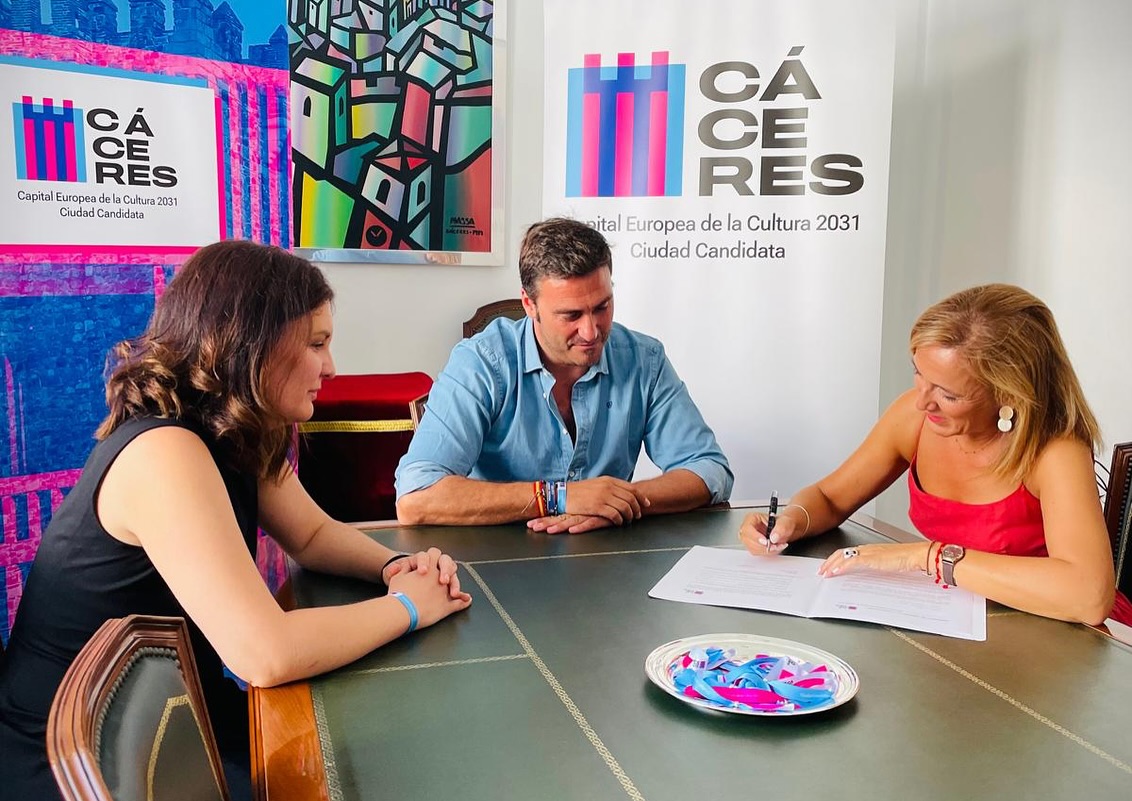
Former Europaeum Scholar | Cáceres 2031 European Capital of Culture
“Culture is a driving force for systemic change.”
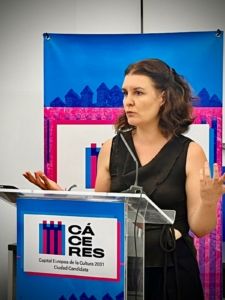
In this interview, we talk to Iris Jugo, the General Coordinator of Cáceres 2031 – a candidate city for the European Capital of Culture and a doctoral researcher at the Complutense University of Madrid.
We discuss her journey since joining the Scholars Programme, the impact of her doctoral research on artistic leadership, and her role in building bridges between culture, education, and policy in Europe.
She shares how artistic practice can become a tool for leadership, educational innovation, and social transformation, offering insights for rethinking the role of culture in contemporary Europe.
Learn how she is using the skills she gained in the Scholars Programme as part of cohort 3, which are helping her deliver a bid for the city of Cáceres to become a 2031 European Capital of Culture and how the Programme taught her to focus ‘on collective impact, the creation of safe spaces for creativity, and the translation of ideas into meaningful social action’.
Please tell us a bit about yourself and your doctoral research.
My name is Iris Jugo Núñez-Hoyo, and I am completing a doctorate at the Complutense University of Madrid. My research focuses on artistic and cultural leadership: how the practice and mindset of artists can shape new forms of leadership for education, culture, and social transformation at a time when we are witnessing a profound paradigm shift.
My interest in social change through the performing arts led me to study in the Global Leader Program, an alliance between several universities, including Harvard University and McGill University, where I was able to connect with artists, managers, and projects from around the world. Previously, I studied for a Master’s in Performance with Karine Georgian at the Royal Northern College of Music (UK) and a degree in cello and chamber music at Tilburg University and Codarts University of the Arts (Netherlands).
Throughout my professional career, I have collaborated with public institutions, as well as private foundations such as Fundación Carasso and Fundación Botín. In addition, together with several fellow artists, I founded my own NGO, Inspiration Persona, which delivers artistic and social projects in different countries. Through this, I firmly believe in international cooperation as a means of exchanging ideas and artists, building networks that strengthen the cultural and educational fabric.
My research proposes that the creative processes inherent in the arts (imagination, collaboration, resilience, performativity, and innovation) can provide the basis for a new paradigm of leadership, capable of responding to the 2030 Agenda goals and the major European challenges of our time.
I apply this approach directly in my role as General Coordinator of Cáceres 2031, where I lead a bid that seeks to position the city as a European cultural reference point and in which we are working on the beginning of a systemic change through culture. There I integrate what I learned in the Scholars Programme and in my research, promoting a model of citizen participation, sustainability, and international cooperation. Cáceres 2031, within the framework of the ECOCs (European Capitals of Culture), is today a living cultural laboratory, exemplifying how a medium-sized city can become a driver of transformation for the whole of Europe.
As General Coordinator, my work ranges from strategic organisation and the coordination of an international team, to administrative, financial, and communication management. This involves designing the roadmap for the bid, leading the production of cultural events, and ensuring the connection with European institutions, all while maintaining a balance between global vision and the local reality of the citizens of Cáceres. These skills were practised and improved through the Europaeum, which enabled me to train and refine my capacity for management, leadership, and communication in international contexts. Without a doubt, this background is helping me in my role at the helm of Cáceres 2031.
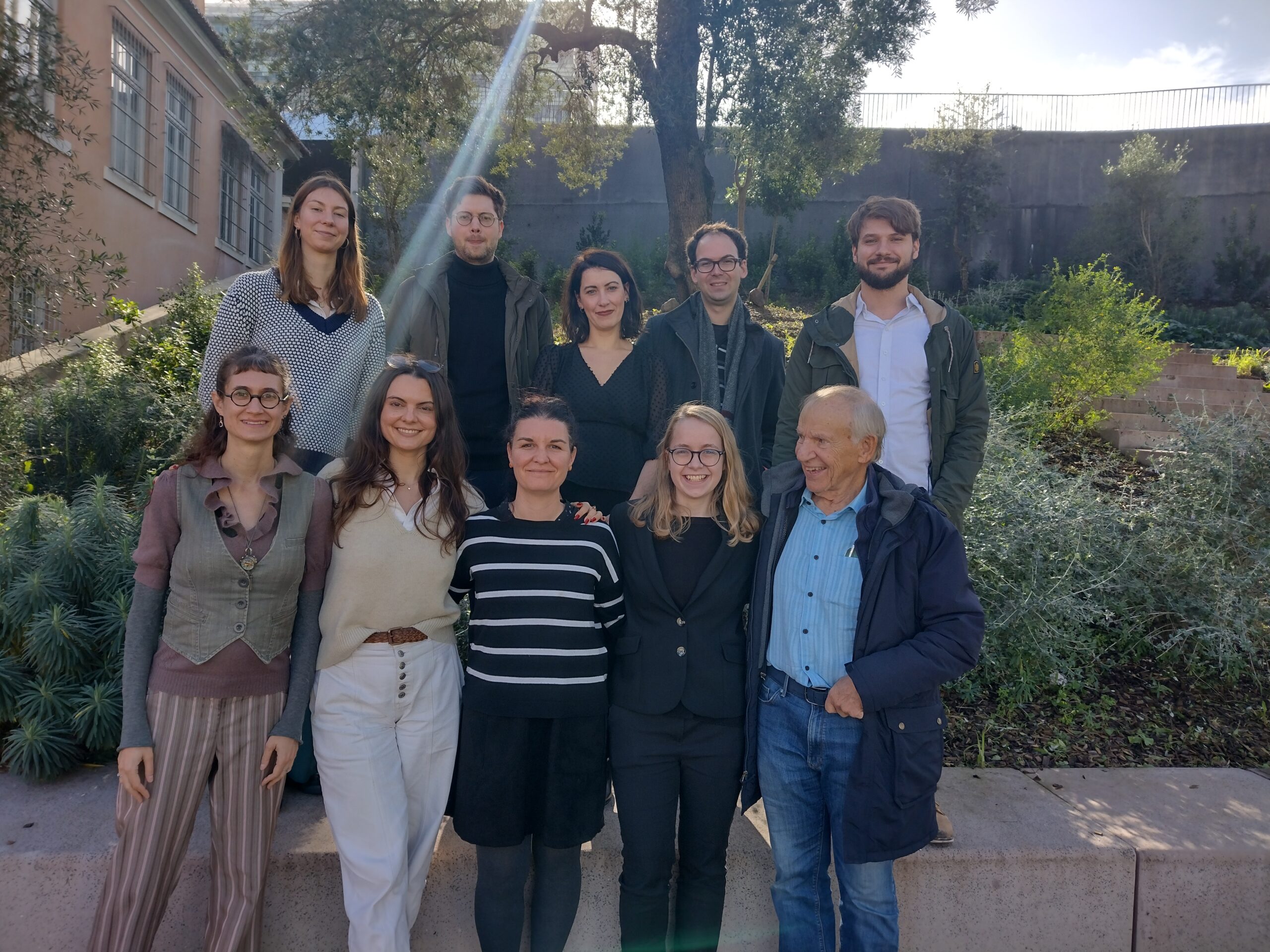
What do you feel was the most important thing you gained from the Scholars Programme?
The Scholars Programme gave me the opportunity to connect my academic research with real-world challenges. The most transformative experience was working with my group on the Level Up! project, where we developed a methodology for democratic participation through the arts and performance. It was amazing to see how the privileged minds of my fellow researchers managed to shape a polyhedral and unusual project, capable of opening up new perspectives on democratic participation.
That experience showed me how artistic practice can contribute directly to
democratic innovation and youth participation. It also influenced the way I design my cultural projects today: focused on collective impact, the creation of safe spaces for creativity, and the translation of ideas into meaningful social action. It is a clear message that we must stop competing solely for the publication of papers or sustaining an empty academic world: what is essential is integral knowledge and the strength that comes from researching with a purpose of social change. And in this sense, the European bridge offered by Europaeum has been the best I have found in the entire global landscape, because it demonstrates that research can and should become a shared transformative action.
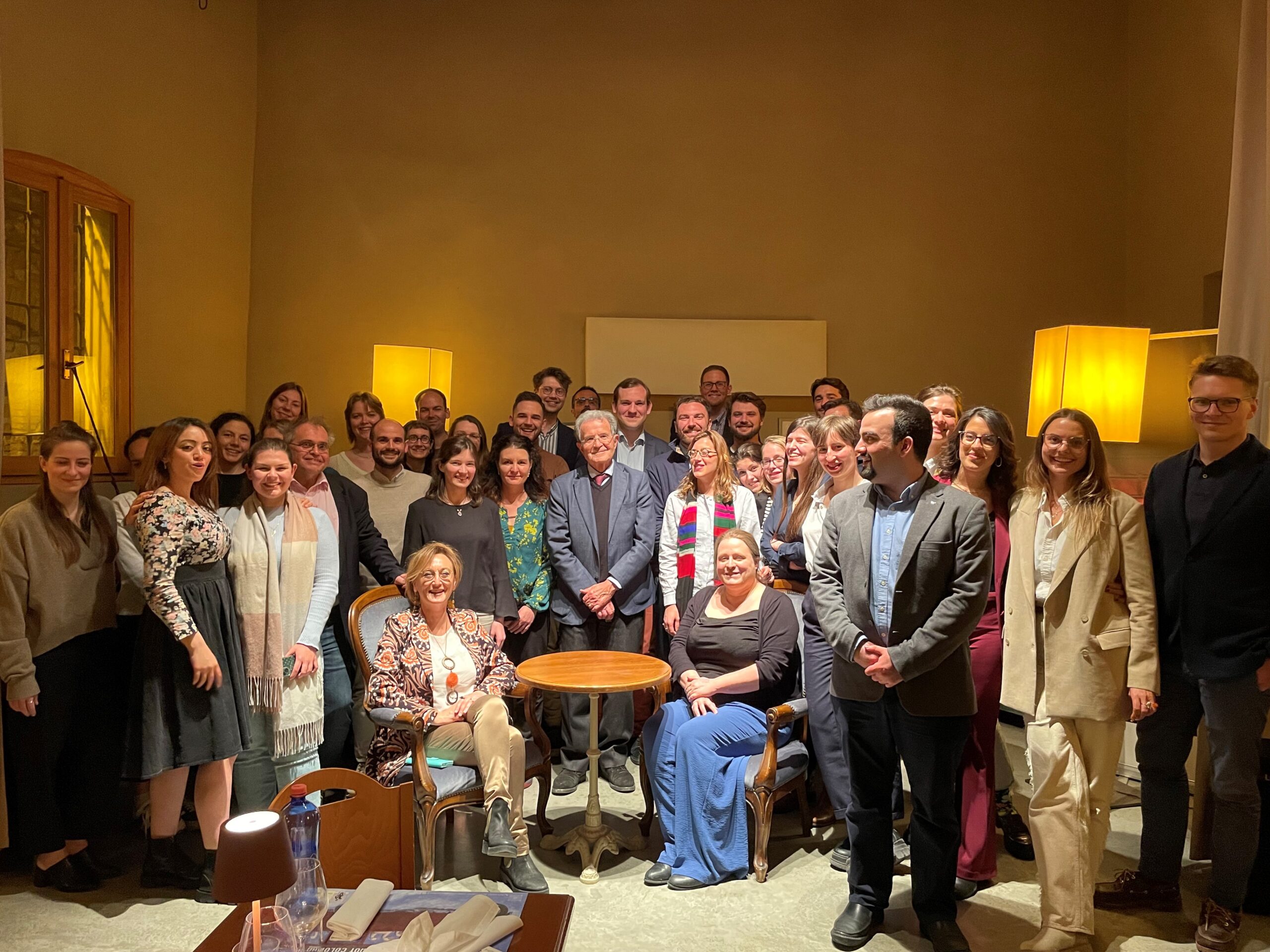
Conversations with Romano Prodi and other leading European figures allowed me to learn first-hand, and very closely, about the past and present of the European Union. And these days, working for Cáceres 2031, I especially remember those conversations. Those discussions made me feel the need to be part of global change and to help Europe become a new version of itself – each person from their own angle of knowledge and responsibility. I have also kept friends from this journey who are now international
colleagues, with whom I continue to share the dream of transforming Europe through culture.
How has the programme influenced your current work?
Today, as General Coordinator of Cáceres 2031 European Capital of Culture, I apply the skills and insights gained during the Scholars Programme. Preparing a European Capital of Culture bid requires strategic vision, international collaboration, and citizen participation: principles that I explored in depth during the Programme.
The methodology I developed in my doctorate, a combination of design-based research and performative knowledge, is now part of the way we are building the bid: experimental, participatory, and rooted in the community, while at the same time connected to Europe.
Thanks to the discipline acquired and the experience at the Europaeum (including in Oxford), as well as the learning alongside the great people I met in the Programme, today it is much more natural for me to work with political leaders and institutional teams. My day-to-day work involves moving between artistic disciplines, engaging with citizen groups, and designing cultural strategies: a constant exercise in translation between languages and realities. This experience has been invaluable preparation for real life, leading me to encourage all young researchers
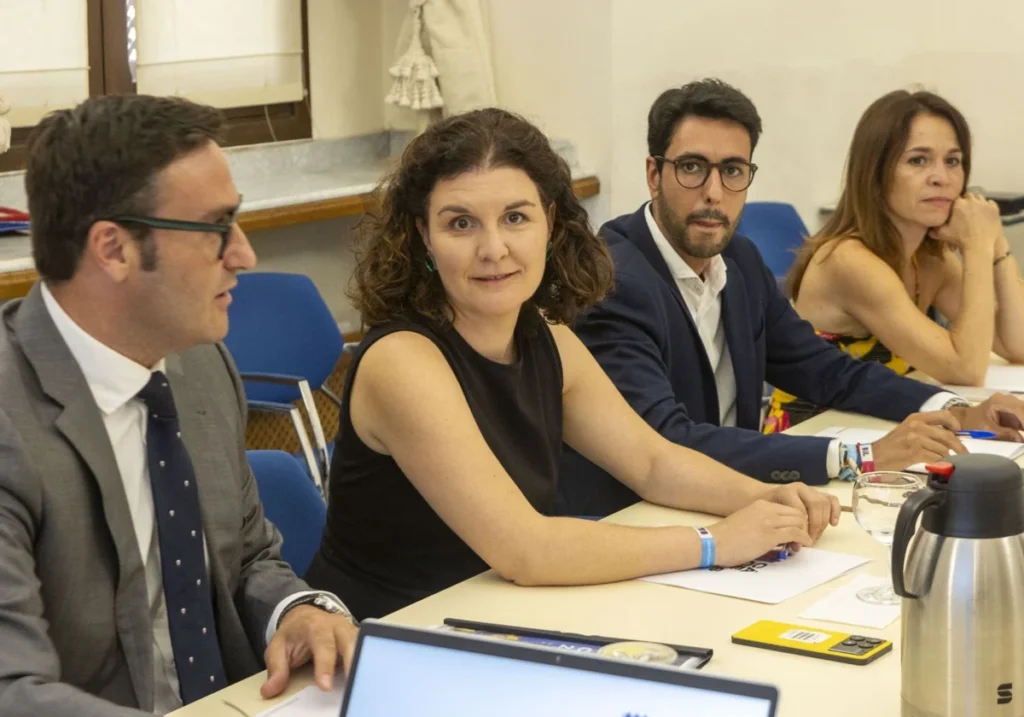
and professionals to maintain close and continuous contact with policymakers. Because it is there – at the intersection of research, culture, and politics, where the changes that Europe needs are forged.
Europaeum Scholars Programme not only provides academic training of excellence, but also constitutes a unique platform for acquiring leadership skills, opening international horizons, and turning research into transformative action. It is an experience that inspires those who wish to work on cultural and political projects of real impact, and that demonstrates that the future of Europe is also written through creativity and interdisciplinary collaboration.
Above all, it reminds us that we must work in the places where we are most needed, away from the showcases and into the communities, because it is there that culture truly becomes transformative.

